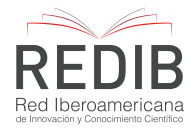The creative role of the interpreter in the effectiveness of the principle of human dignity
DOI:
https://doi.org/10.5433/2178-8189.2014v18n1p241Keywords:
Base, Law, State, Dignity, Interpretation.Abstract
Human dignity, how to define it? Cecilia Meirelles defined the word freedom in a poetic way: "This word that the human dream feeds. Which no one can explain and that there is no one who does not understand”. Thus, by analogy, we can carry the beautiful verses to Law and refer to human dignity. Indeed, defining dignity is not a simple task, because its outlines are purposely vague and imprecise. Thus, this paper presents a study of human dignity as a principle and its philosophical and legal aspects, taking also into account the participation of the legislature, the judiciary and society itself for its implementation and enforcement in order to reach an, at least reasonable, analysis of this value, and, so, understanding the role of the interpreter at the prospect of his creative activity.















